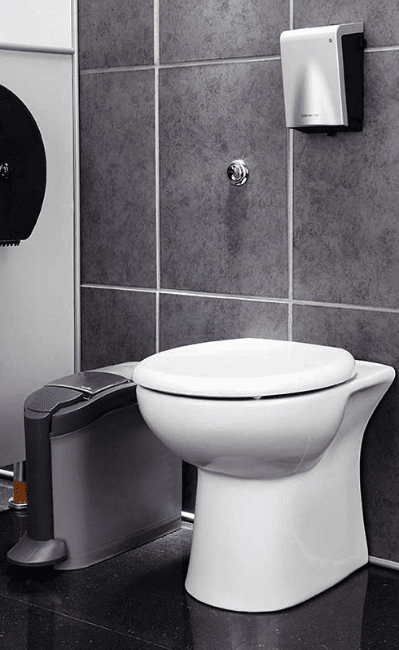If sanitary hygiene units are not managed in the correct way, then they can become breeding grounds for harmful bacteria, which can cause a number of diseases including hepatitis B, hepatises C and even HIV. It is therefore vitally important that sanitary hygiene units are managed to ensure they are professionally cleaned on a regular basis.
With World Hepatitis Day fast approaching, Citron Hygiene are aiming to raise awareness about the importance of keeping feminine hygiene units clean to avoid the potential for cross contamination to occur, which could lead to people contracting hepatitis.
Table of Contents
World Hepatitis Day
Estimates suggest that worldwide 300 million people are currently living with viral hepatitis (A, B or C). Hepatitis is an inflammation of the liver and poses a significant threat to health. The virus is responsible for two thirds of liver cancer deaths. The 28th July marks World Hepatitis Day and this annual event aims to spread awareness globally about the risks of hepatitis and why it is so important to take precautions. World Hepatitis Day is endorsed by the World Health Organisation and this years’ theme is to find the missing millions; focusing on uncovering the millions of people around the world who have not been diagnosed with hepatitis but are suffering from this infection.
The risk of hepatitis is very real and it is therefore essential that the upmost care is taken to ensure that the sanitary hygiene unit itself is properly cleaned to avoid it harbouring this virus.
Reducing the risk of hepatitis in sanitary bins
Sanitary waste can carry diseases, such as hepatitis B, which can live outside of the body for up to a week leading to sanitary hygiene units in public washrooms becoming a real threat for contracting infections. Germs will gather and spread within the SHU unless the unit and its contents are effectively sterilised. Failure to sterilise the unit means that anybody coming into contact with it will be at risk.
In 1955 Citron Hygiene changed the way sanitary waste was managed, introducing the first every sanitary hygiene unit and have continued to be a leading supplier of sanitary hygiene disposal units ever since.
The most effective way to avoid harmful germs being spread is to kill these germs immediately by using germicides. That is why all of Citron Hygiene’s Sanitary Bins are fitted with the E-card.
The Benefits of ActivapTM
The E-card is a natural anti-microbial product which eradicates bacteria that can enter and grow in a Sanitary Disposal Unit, while producing a pleasant fragrance in the surrounding environment. It protects operators and end users from any pathogenic bacteria and prevents any offensive odours developing at source.
You will find the E-card in all our sanitary hygiene units, as well as our clinical waste and nappy disposal units, where there is also the threat of harmful bacteria multiplying if left untreated. Each time the unit is serviced, it is sanitised and charged with a new E-card.
Expert Sanitary Bin Management
Having introduced the first ever sanitary hygiene unit, Citron Hygiene continue to lead the way and understand that Sanitary Bins are not just about odour control, but about minimising the spread of potentially harmful germs.
Our priority is to reduce the number of germs present in our sanitary hygiene units, but this doesn’t mean we’ve forgotten to keep aesthetics in mind too. Our latest innovative feminine hygiene unit design, The Citron Hygeia provides a sanitary bin that will add style to your washroom.
If you would like to find out more about Citron Hygiene’s services to help you manage sanitary waste, then please contact a member of our expert team.
